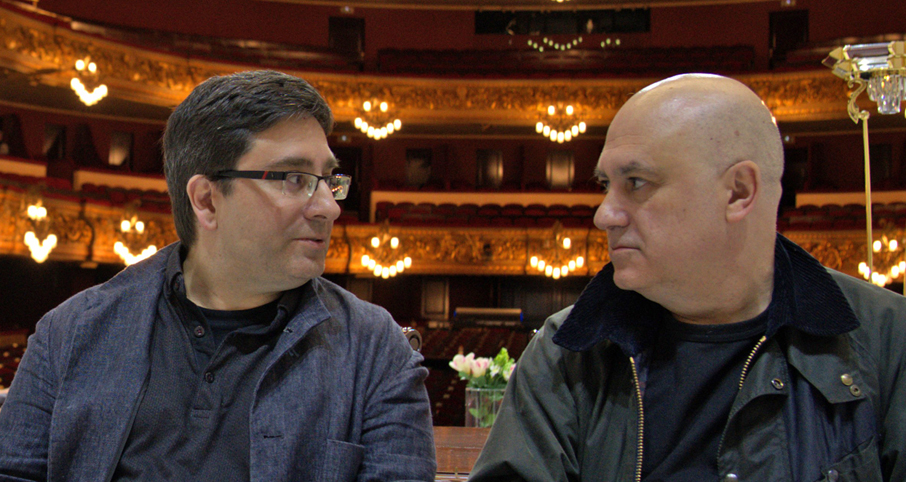
A new co-production between the Teatro Arriaga Antzokia in Bilbao, the Castell de Peralada Festival, and the Gran Teatre del Liceu.
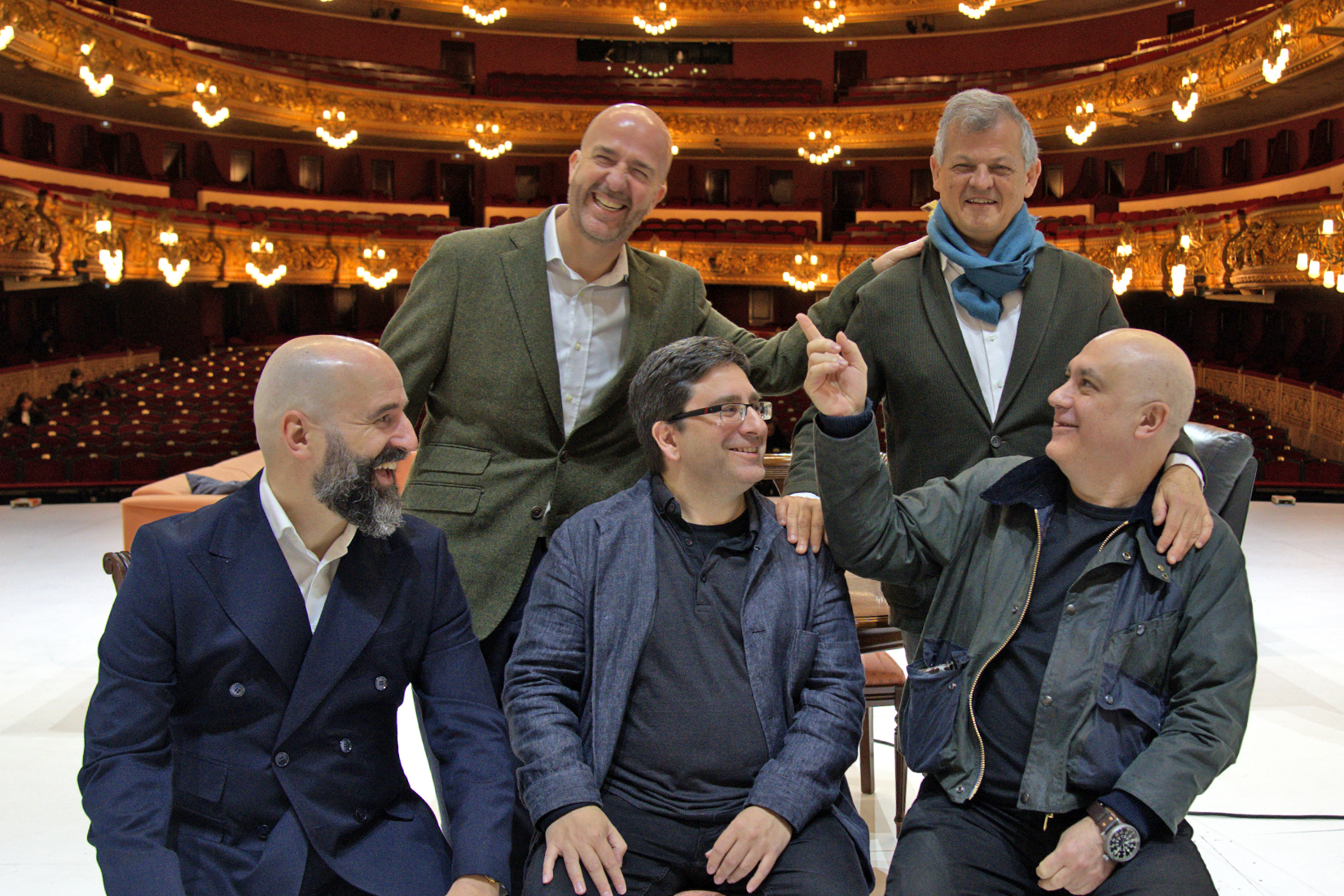
- 'Orgia' is a co-commission and a new co-production between the Teatro Arriaga Antzokia in Bilbao, the Castell de Peralada Festival, and the Gran Teatre del Liceu that integrates many important ingredients, including the Barcelona premiere of the lyrical score by Hèctor Parra, one of the Catalan composers with the most international projection.
- Alongside him, Calixto Bieito will bring all his genius to the dissection of the protagonist characters of this tragic self-destructive story of a marriage.
- After two previous operatic collaborations between Calixto Bieito and Hèctor Parra —Wilde (2015) and Les bienveillantes (2019)—, they have now worked on the original text of Orgia (1966), which speaks of the discomfort of the human being in capitalist society, dominated by consumption and standardization.
- Written for three voices and chamber orchestra, Orgia builds bridges between 20th-century expressionist opera and the latest avant-gardes, with some Baroque references. Master Pierre Bleuse leads the Liceu Orchestra, shining a light on an energetic score with the voices of Aušrinė Stundytė, Christian Miedl, and Jone Martínez.
- In 'Orgia,' love and sex are at the service of sadistic destruction. The action takes place at a married couple's home, a closed space where anguish and remorse cast monstrous shadows. The only way they have to endure their relationship is with a sadomasochistic ritual that channels frustrations through pain.
- Supported by Idealista.
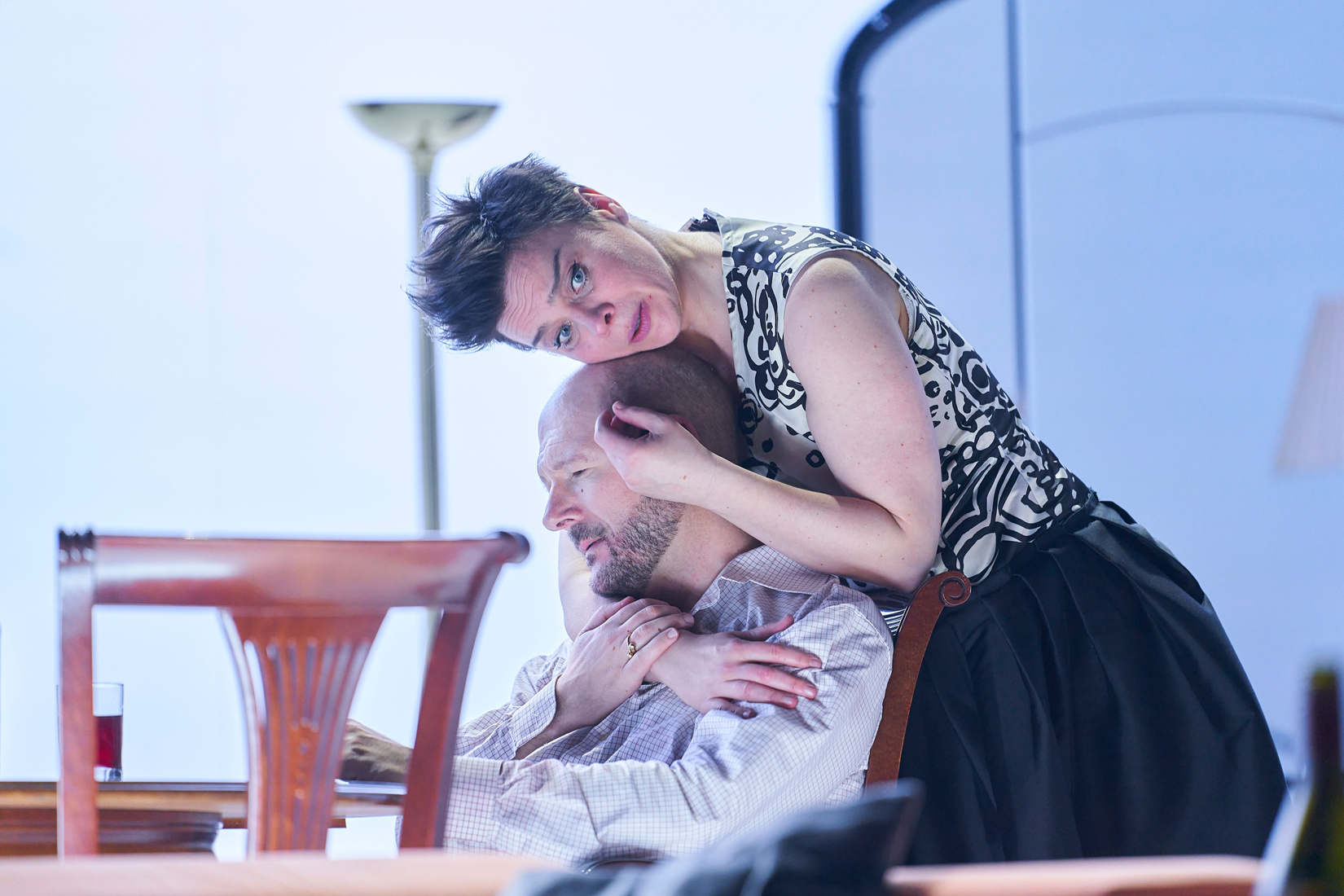
Barcelona, April 9, 2024. In their third collaboration on an opera, composer Hèctor Parra and stage director Calixto Bieito tackle a brutal play by Pasolini, written in 1966, Orgia, which will be staged at the Gran Teatre del Liceu on April 11 and 13. The work speaks of the discomfort of the human being in capitalist society, dominated by consumption and standardization, penalizing dissent and the desire to be different.
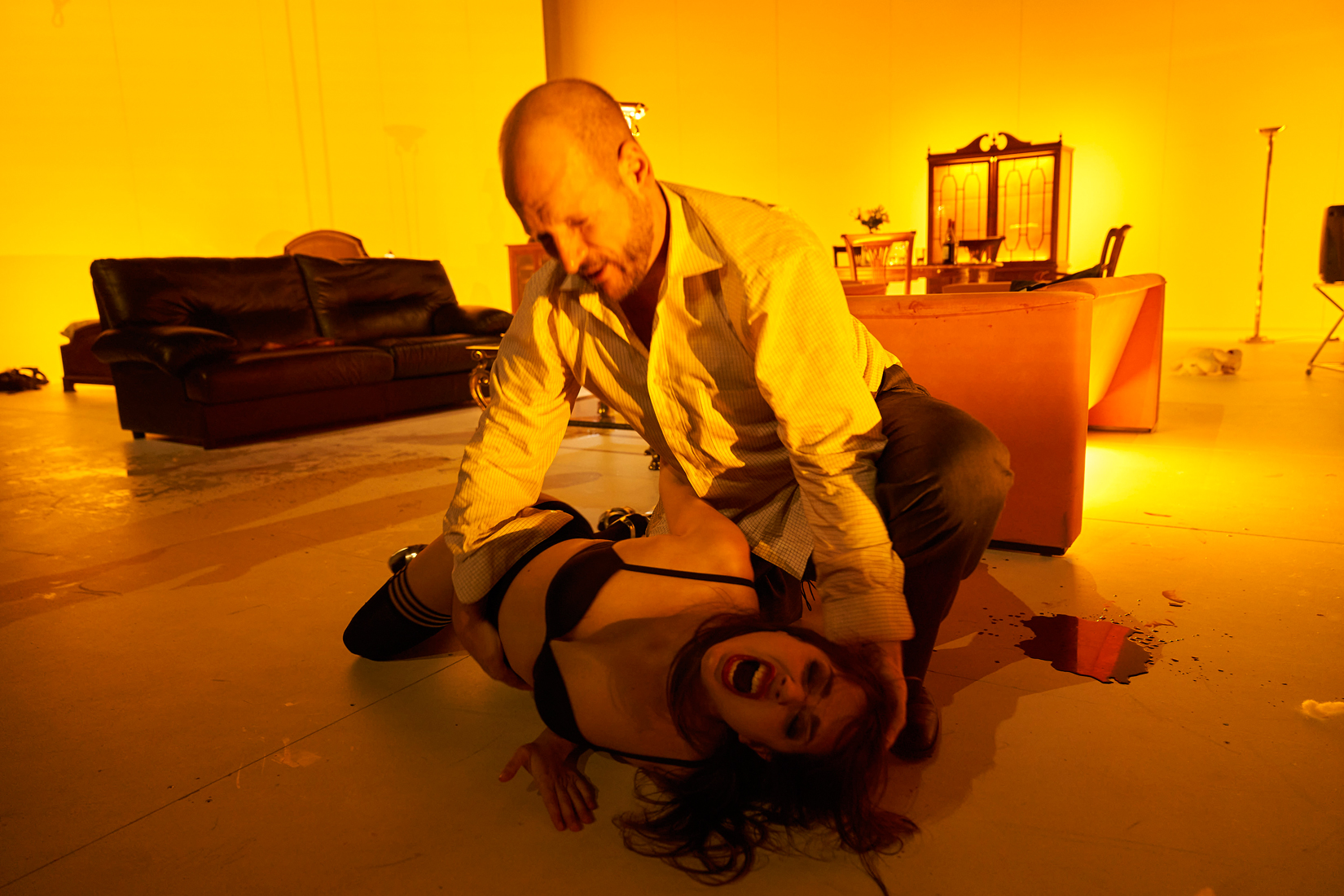
The production
To a large extent, in addition to being a tragedy about the spirit of the twentieth century, Orgia is also a domestic drama: it speaks of a couple who have become bored with their life together, who have nothing to say to each other —if they ever had anything in common— and who have reached the point where they only know how to communicate through violence in a highly toxic sadomasochistic relationship. Therefore, the horror of the story is enclosed within the walls of their home: a modest, middle-class apartment, which aims to be a metaphor for the petit-bourgeois condition as a prison or hell.
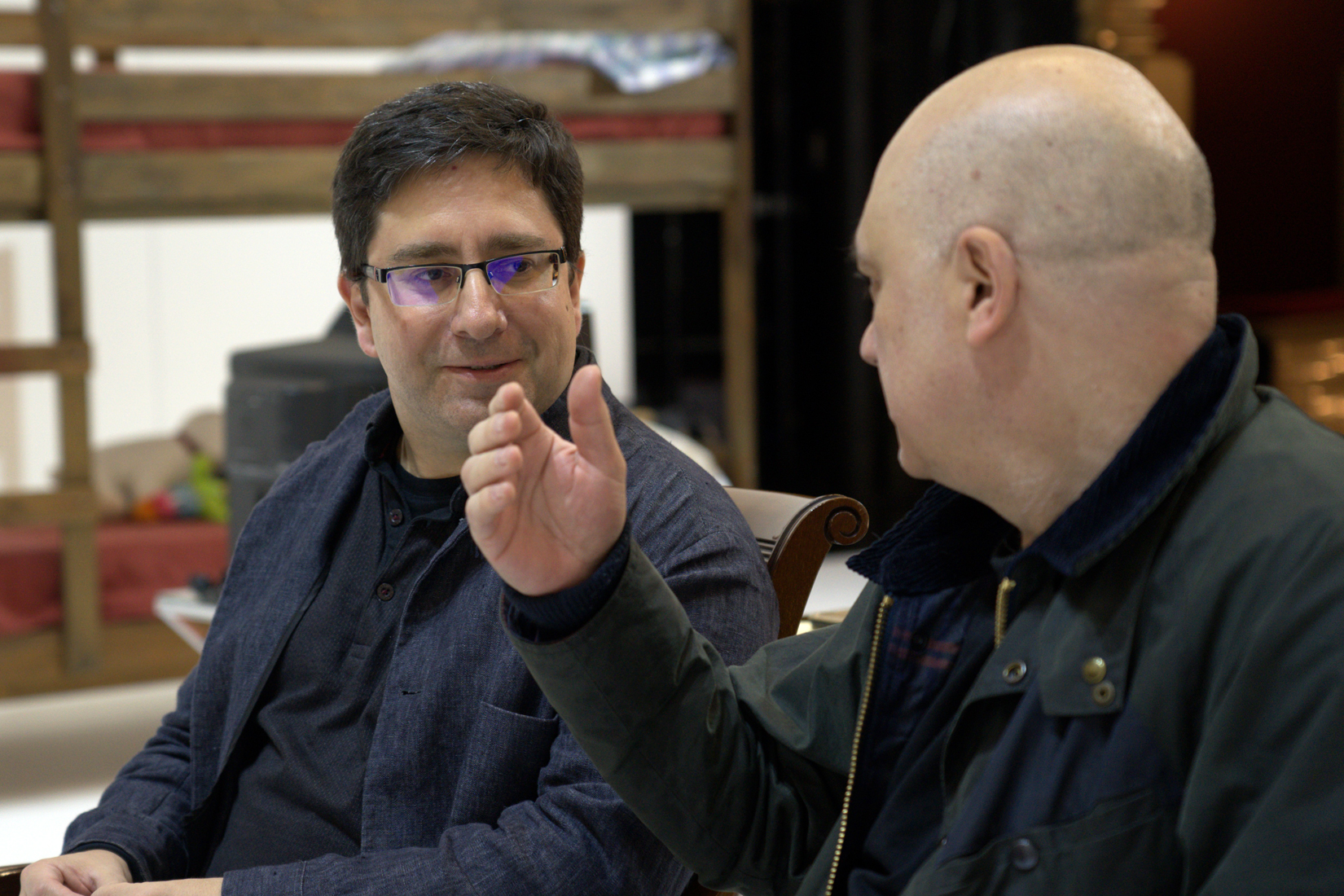
The production created by Calixto Bieito is extremely faithful to Pasolini's play. The libretto respects almost the entirety of the text —Bieito, in charge of the adaptation, has only cut some redundant or unnecessary lines to streamline the action without losing any profound sense of the author's message— and this means that all the action takes place at the home of this couple in full process of disintegration. The set design therefore presents a modest and comfortable apartment with typical 1960s decoration where all the rooms are visible: the hallway, the living room, the bedroom. Thanks to this familiarity with the environment —it could be any viewer's apartment— and the concentration of space, we can see Orgia as a disturbing piece, as everything that happens —the harsh confessions of the characters and their abject acts— occurs in a delimited place and becomes oppressive. Parra's music, visceral and dissonant, enhances the sensation of nightmare to the limit.
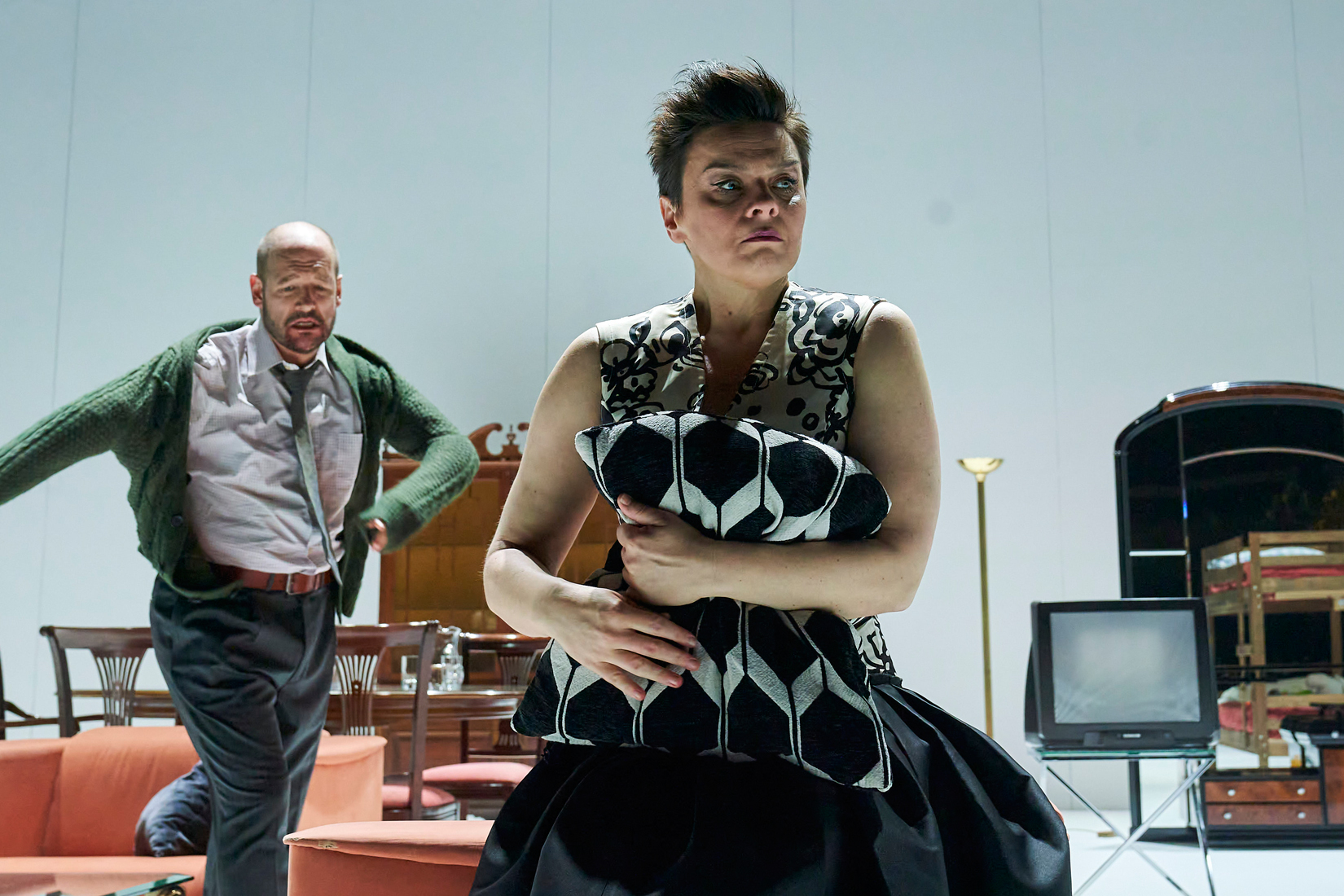
One of the messages of the work is that capitalist society turns people into conformists, into mere consumers, and ultimately annuls their initiative and critical sense. The character of the Man ends up admitting that he is homosexual and accepts that this society will never let him come out of the closet and show himself as different from the rest: hence his discomfort and his uncomfortable position in the marriage, as he uses it as a façade to project a correct image of an exemplary husband, of a petit-bourgeois with no aspirations. The Woman, on the other hand, attributes the origin of her discomfort to the disintegration of her soul: she misses a quieter, less accelerated past, in which each step in life had meaning, and at the same time finds herself trapped in a marriage with a man she does not love and with children she did not desire.
One of the aspects that Calixto Bieito has taken care of the most is the dramaturgy. We know his attraction to roughness and violence, and Orgia has plenty of it, but in this work there is no gratuitous aggressive gesture. The singers must be believable in all their confessions and disputes; they must seem very sincere when they threaten to hit or accept physical harm. Ultimately, everything that happens on stage must be faithful to Pasolini's idea of criticizing the moral corruption of contemporary society through the representation of the cruelest behavior and the search for catharsis.
In a way, Orgia is a precursor to the film Salò, or the 120 Days of Sodom, one of Pasolini's most controversial works and, at the same time, the one that best embodies his denunciation of consumer society as a covert form of fascism, as it finds its power in the submission of the masses to a single thought.
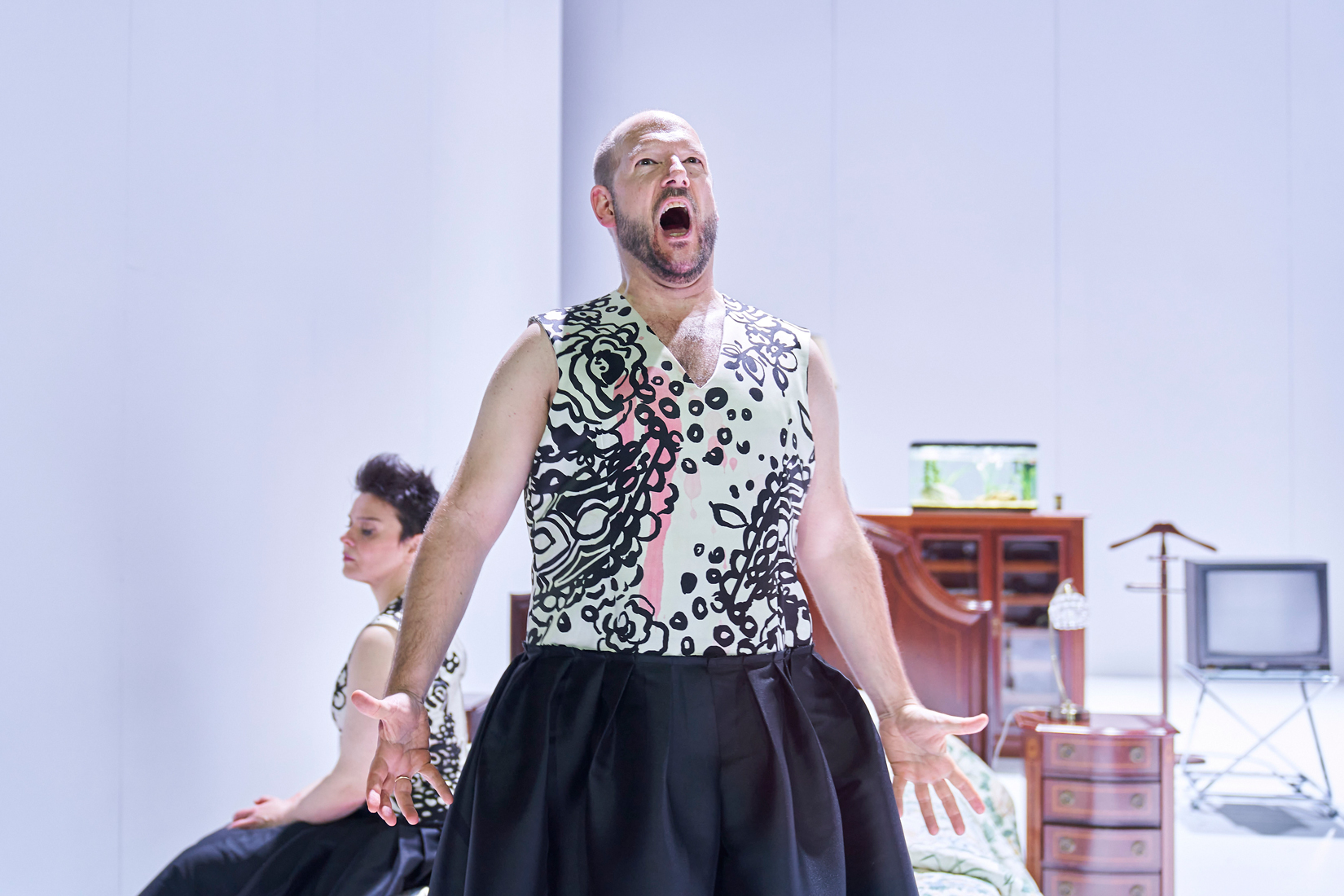
The Score
In Orgia, there are only three roles, and all three present extreme difficulty both in terms of dramatic interpretation and purely musical performance.
Hèctor Parra's score develops a fluid and organic lyricism that, according to the nature of the text, takes different forms: where the flow of words is faster and the dialogues are more lively and cutting, the melodic lines closely follow the sinuous and rhythmic profiles of the original Italian language. Thus, the main phonetic colors of each phrase are accentuated with more extreme dynamics and registers, while the transitional passages are expressed with an almost spoken voice. At certain specific moments, according to the characteristics of Pasolini's text, lyrical singing gives way to a purely spoken voice stripped of all lyricism. However, at other times, the lyrical singing soars above the orchestra, which counterpoints it with strident spectrum sounds and unstable textures, highlighting the fragility and ephemeral beauty of the human condition. Thus, in these passages, the melodic lines expand exploring colors and registers markedly operatic, close to the Italian tradition.
In the passages where the characters of Orgia experience the contrast, characteristic of Pasolini, between the consumerist and dehumanizing present and a pre-industrial past idealized by him, the orchestral music through the sounds of the lute and the harp transforms in order to lead us to the origins of the operatic genre, citing key passages from Peri's Euridice and Monteverdi's Orfeo. The lyrical climax of Orgia is found in the moment when the female protagonist, at the end of Episode IV, plans and executes the terrible act of Medea, through an enigmatic twelve-minute sarabande inspired by Suite française no. 6 by Bach.
However, the real difficulty of Orgia lies in the interpretation: we must not forget that it is almost Pasolini's entire work—the libretto is the original text with some parts cut to streamline the performance, but it does not change the meaning or purpose—and therefore, the dramatic demand is very high. This requires performers who, besides being versatile and energetic singers, must also be good actors. In this production, the two main roles will be played by Lithuanian soprano Aušrinė Stundytė, who already sang Orgia at the premiere in Bilbao in 2023 and stands out for mastering various roles in the baroque repertoire—especially Dido, in Purcell's opera—and in the 20th-century modernist classics by Strauss, Bartók, or Penderecki. The main male role will be played by German baritone Christian Miedl, the only one of the singers who did not participate in the premiere in Bilbao. Miedl specializes in roles from classicism and early romanticism—Rossini, Mozart—as well as in 21st-century premieres. The other female role, that of the Girl, will be played by another soprano, Jone Martínez from Biscay, one of the best young national voices of the moment who is also specialized in baroque and contemporary music.
They will be accompanied by the Symphony Orchestra of the Gran Teatre del Liceu in chamber format, as the score is written for a small ensemble of instruments. The musical director will be Frenchman Pierre Bleuse, one of the most important masters of the moment in contemporary creation. Not in vain, since this season he has been the titular conductor of the prestigious ensemble Ensemble Intercontemporain, which has a very close link with the IRCAM of Paris and was founded by Pierre Boulez. His presence is therefore a guarantee of rigor in the execution of a score full of nuances and stirring passages.
With the support of:


